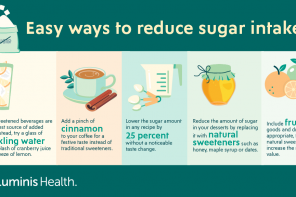Supporters claim that intermittent fasting helps with weight loss faster than traditional diets. While most diets call for you to take in less food than your body burns, intermittent fasting ranges from 16 to over 24 hours.
Let’s take a look at the benefits and consequences of this food trend.
Benefits
Weight loss. Fasting can be a useful weight loss tool for some. But although research has shown success, studies have been small, few and mostly done on animals.
Health. Intermittent fasting can help reduce triglycerides and increase high-density lipoprotein cholesterol, which can lower the risk of heart disease. It can also reduce the chances of developing other diseases such as Alzheimer’s.
Convenience. You might find it easier to follow intermittent fasting over a long period instead of keeping food records and restricting calories. There are companies that promote packaged meal plans but these can be expensive, ranging around $300 for a week of food.
Consequences
Physical side effects. Some research participants experienced headaches, constipation and lack of energy. Some also reported developing a bad temper and lack of concentration. One study found that those fasting became more preoccupied with food, which could be an issue if you are predisposed to eating disorders.
Sustainability. Living in a food-centered environment – like attending social gatherings – can make fasting extremely difficult to sustain.
You should talk to your doctor if you are considering intermittent fasting. Skipping meals and severely restricting calories can be dangerous if you are pregnant, have a history of eating disorders or certain conditions, like diabetes and hypoglycemia. If you take medications for blood pressure or heart disease this can also lead to electrolyte imbalances.
Unfortunately, there isn’t enough research. There are many approaches to weight loss and healthy eating you might consider instead. Talk to your doctor to find the best approach to meet your individual needs.
Ann Caldwell and Maureen Shackelford are nutritionists and registered dietitians at Anne Arundel Medical Center. To reach them, call 443-481-5555.




